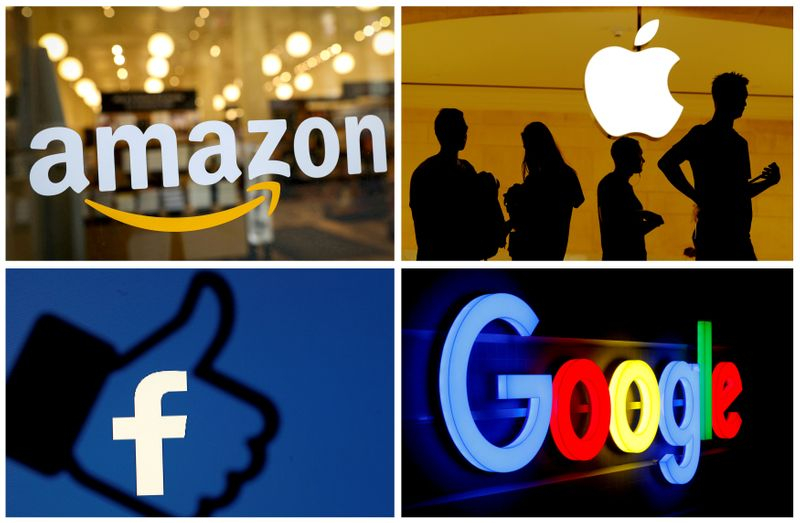Exclusive-New EU rules to define gatekeepers by users, areas of business – sources

By Foo Yun Chee
BRUSSELS (Reuters) – Tech companies with millions of European users or active in at least two sectors will be classified as online gatekeepers subject to tough new EU rules aimed at curbing their power, three people familiar with the matter said on Thursday.
The criteria defining online gatekeepers which control access to people, services and information are expected to hit Alphabet (NASDAQ:GOOGL) unit Google, Facebook (NASDAQ:FB), Apple (NASDAQ:AAPL) and Amazon (NASDAQ:AMZN).
The yardsticks will be set out in the Digital Markets Act (DMA) which European Competition Commissioner Margrethe Vestager will present on Dec. 15. The draft rule lays out a list of dos and don’ts for digital gatekeepers.
There could still be changes due to ongoing discussions at the European Commission, the people said. The proposed DMA has seen multiple modifications in recent months in response to legal concerns and conflicting demands within the EU executive.
“It is going to be a fairly short list of gatekeepers,” one of the people said, adding that numerical criteria will be used.
One of the criteria for a gatekeeper will be its number of individual or business users on a pan-European level, the people said.
Market share has been discounted as a yardstick because it is a competition concept whereas the DMA will be based on EU internal market rules, they said.
A company with activities in at least two areas, for example search or online advertising, will be also be considered as a gatekeeper.
Dominant companies active only on one platform can be subject to the DMA following a qualitative analysis by the Commission, they said.
The Commission’s regulatory scrutiny board, which does fitness checks of its policies and laws, on Thursday gave the green light to the principles of the DMA after an earlier negative report, the people said.
Vestager’s announcement next week is expected to trigger intense lobbying by U.S. tech giants, which said new rules should be proportionate, balanced and not hold back innovation in digital markets.
The proposed legislation however may be watered down following negotiations with EU countries and the European Parliament in the coming months before it can be adopted.

